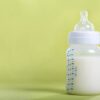French researchers posted their new results in the Journal of the American Medical Association explaining how symptoms of ‘long COVID-19′ might be the result of psychological factors more so than the virus’ infection.
Nearly 27,000 French participants took part in the study, with antibody tests administered for COVID screening.
Following their antibody tests, the participants were instructed to provide input on whether they believed infection occurred and any subsequent symptoms.
Close to all of the participants had tested negative for COVID antibodies and believed they hadn’t been sick. The ones that believed they had been infected were more likely to say they had long-term symptoms.
According to the study: “In this cross-sectional analysis of 26,823 adults from the population-based French CONSTANCES cohort during the COVID-19 pandemic, self-reported COVID-19 infection was associated with most persistent physical symptoms, whereas laboratory-confirmed COVID-19 infection was associated only with anosmia.”
The study concluded: “Findings suggest that persistent physical symptoms after COVID-19 infection should not be automatically ascribed to SARS-CoV-2; a complete medical evaluation may be needed to prevent erroneously attributing symptoms to the virus.”


